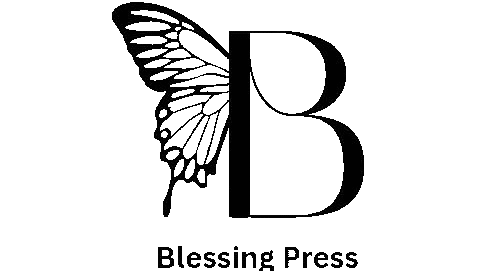Have you ever felt trapped in a relationship, group, or spiritual setting where something just didn’t feel right but you couldn’t put your finger on it? That subtle, almost invisible force might be the spirit of manipulation at work.
This form of spiritual and psychological influence can twist your thoughts, emotions, and decisions, leaving you anxious, fearful, or dependent. In this article, we’ll explore how to recognize the signs, understand the mechanisms and tactics,
protect yourself, and begin healing and reclaiming your autonomy. Stay with us, because uncovering these hidden patterns could change the way you experience relationships and spirituality forever.
What is Spiritual Manipulation?
Spiritual manipulation, also called spirit of manipulation, occurs when someone uses spiritual or religious beliefs to control, influence, or exploit others. In relationships, this often shows up subtly, making you doubt your own judgment while fostering dependency.
It can appear as emotional abuse, psychological manipulation, or even relational witchcraft, where individuals use works of the flesh or evil spiritual forces to enforce control. The key is spiritual discernment, which allows you to see beyond authority or peer pressure, recognize coercion, and regain confidence in your choices.
People under manipulation may experience guilt and fear, self-doubt and identity erosion, or constant anxiety and lack of joy, making the manipulation almost invisible until significant harm occurs. Understanding what spiritual manipulation looks like is the first step to protecting yourself from abuse of authority and psychological coercion.
In daily life, spirit of manipulation can appear in marriages, friendships, workplaces, or leadership contexts. Leaders or peers may use pressure to obey, conditional love and acceptance, or scriptural distortion to control behavior.
They often rely on subtle domination, twisting truths, and intimidation to make you feel spiritually inferior or morally obligated. Recognizing these patterns is crucial because spiritual manipulation isn’t just emotional or mental—it attacks your autonomy and connection to your own values.
By paying attention to these mechanisms and tactics, you can start noticing the signs early and prevent long-term damage to your self-esteem and confidence.
Mechanisms Spiritual of Manipulation
The spirit of manipulation thrives through strategic tactics that exploit human desire, fear, and moral uncertainty. Common mechanisms include fear and guilt inducement, authority abuse, and unrealistic expectations that trap individuals in obedience.
Many manipulators use controlling tactics like social isolation, emotional withdrawal, and psychological coercion to erode your sense of self. By combining intimidation with conditional love and acceptance, they make compliance seem spiritually required, creating a paralyzing double bind where disobedience feels like sin but obedience compromises your integrity.
Recognizing these mechanisms and tactics in relationships, workplaces, or even spiritual communities is critical for maintaining your autonomy and self-worth.
Manipulation also leverages invisible influences that some call evil spiritual forces. While psychology explains much of human behavior, scriptures remind us of the unseen realm influencing thoughts and actions, highlighting the importance of spiritual vigilance and discernment of desire.
Examples in the Bible, such as Ananias and Sapphira (Acts 5:1-3) or King Saul and the evil spirit (1 Samuel 16:14-15), show how divine guidance and moral awareness can help identify spiritual manipulation.
Understanding these forces gives context to why manipulative behaviors like gaslighting, deception and lying, and harsh judgment feel so compelling—they are designed to disrupt your internal moral compass and disconnect you from your spiritual center.
Emotional and Psychological Indicators
The spirit of manipulation manifests through deep emotional and psychological indicators. You may notice feelings of constant anxiety, shame, guilt, or fear of divine punishment. Your self-esteem and confidence erode, leaving you vulnerable to identity and purpose loss.
Often, manipulators use peer pressure and obedience or coercion and control to amplify these effects, making you question your conscience and values. Awareness of these signs is crucial for rebuilding autonomy and maintaining emotional and spiritual health.
Behavioral Signs
Outwardly, behavioral signs of manipulation appear as passive-aggressive behavior, social withdrawal, self-doubt, and constant fear. Individuals under the spirit of manipulation may exhibit intemperance, act under psychological coercion, or accept unrealistic expectations.
Observing these behavioral signs in marriage manipulation, friendship manipulation, or workplace manipulation helps identify patterns early, preventing deeper emotional or spiritual harm.
Red Flags in Leadership or Relationships

Leaders or partners wielding spiritual authority may display control through intimidation, twisting truths, or conditional love.
They often discourage questioning and isolate individuals from support, creating emotional dependency. Recognizing these red flags ensures you maintain boundaries in personal life and cultivate empowerment in relationships.
Detecting the Spirit of Manipulation
Some signs hint at inward spiritual influence, such as compulsion and torment, relentless harassment, or strong internal pressure that overrides personal will.
These internal struggles may signal alignment with evil spiritual forces, which manipulate desires beyond conscious understanding. Awareness and spiritual discernment help you detect and resist such subtle control.
Outward Behavioral Signs
Externally, signs include lying, warping facts, controlling tactics, harsh judgment, and constant anxiety.
In relationships, these behaviors often pair with emotional withdrawal, social isolation, or deception, reflecting psychological manipulation designed to dominate or control.
The Cost of Spiritual Manipulation
The spirit of manipulation damages relationships, undermines self-esteem, and erodes identity and purpose. Victims often experience shame and guilt, confusion, and alienation from conscience.
Long-term exposure may result in paralyzing double binds, where you feel trapped between obeying manipulators and preserving personal integrity. In spiritual contexts, it also distorts your connection to divine guidance and Holy Spirit guidance, leaving you vulnerable to further influence.
The cost goes beyond the mind—it affects your soul, values, and the ability to form healthy trust and deception-free relationships.
How to Protect Yourself and Deal with Spiritual Manipulation
Dealing with spirit of manipulation requires deliberate action. Begin with self-reflection and awareness, noting triggers, vulnerabilities, and moments when you feel coerced. Setting boundaries is essential; clearly define what is acceptable and enforce it consistently.
Seek community support, professional counseling and therapy, and guidance from mentors who understand spiritual and psychological manipulation. When confronting the manipulator, do so carefully, using “I” statements, focusing on your experiences, and avoiding accusations.
Document interactions if necessary, and maintain a support network to ensure safety and emotional stability.
Self-Reflection and Awareness
Reflect on moments where you feel guilt and fear or pressure to obey. Track emotional and psychological indicators and patterns that signal manipulation. This practice strengthens critical thinking, spiritual discernment, and rediscovery of self and values.
Setting Boundaries
Clearly define your limits to protect against coercion and control. Healthy boundaries prevent isolation in relationships, identity erosion, and excessive reliance on manipulators.
Seeking Support
Lean on trusted friends, spiritual mentors, or professional counselors. Community support and counseling and therapy provide perspective, reduce isolation, and empower you to reclaim autonomy and trust in yourself.
Confronting the Manipulator
Approach confrontation cautiously, focusing on your experience rather than accusation. Protect your emotional well-being, maintain boundaries, and prepare for possible resistance. Document interactions if necessary to preserve clarity and safety.
Overcoming Spiritual Manipulation

Overcoming the spirit of manipulation requires rebuilding self-esteem, identity, and autonomy. Engaging in spiritual growth and protection, reflecting on past experiences, and embracing divine guidance restores confidence and clarity.
Learning to recognize mechanisms and tactics, like gaslighting, scriptural distortion, or subtle domination, empowers you to break free from patterns of emotional abuse and psychological manipulation.
Healing happens through rediscovery of self and values, reinforcing vigilance and discernment to prevent future manipulation while fostering healthy, empowered relationships.
FAQs;
How can I tell if someone is controlling me through my beliefs?
The spirit of manipulation often makes you feel guilty or fearful for questioning authority. Trust your inner voice and it knows when your freedom is at risk.
Can manipulation in relationships feel invisible yet harmful?
Yes, it creeps in subtly through words, actions, or neglect, leaving emotional scars. Awareness and reflection help you reclaim your peace.
How does spiritual manipulation affect my daily life?
It can erode self-confidence, create constant anxiety, and twist your sense of purpose. Recognizing these signs allows you to regain control.
What steps can protect me from the spirit of manipulation?
Build boundaries, seek supportive communities, and practice spiritual discernment. These actions help shield your mind and heart from harm.
Is healing possible after experiencing manipulation?
Absolutely. Through reflection, prayer, and guidance, you can rebuild trust in yourself and nurture healthy, thriving relationships.
Conclusion;
Understanding the spirit of manipulation is the first step to protecting yourself from hidden emotional and spiritual control.
By recognizing the signs, reflecting on your own vulnerabilities, and learning to set healthy boundaries, you can reclaim your freedom and restore peace in your relationships.
Healing also comes from seeking support through trusted communities, counseling, and spiritual guidance.
Remember, no matter how subtle manipulation feels, you have the power to overcome it, rebuild your identity, and reconnect with your true self and purpose.

hy, My name is Malik Asif. am a blogger form last 10 year. am a exper

